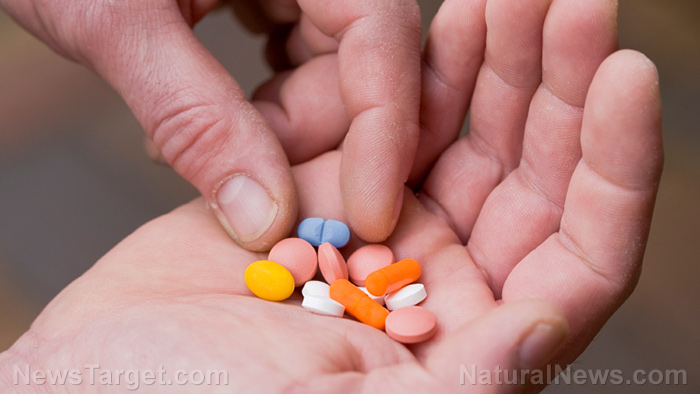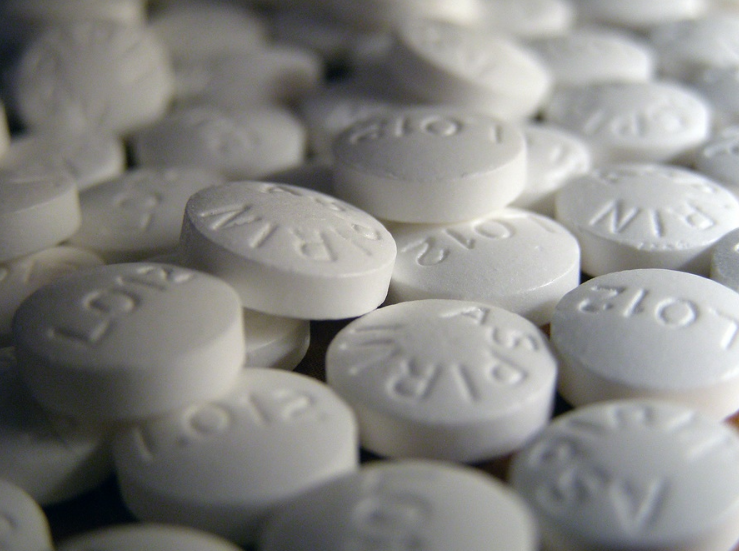Recall of medication for high risk heart attack and stroke patients: Clopidogrel, sold as Plavix, has been mislabeled and recalled
01/19/2018 / By Earl Garcia

International Laboratories voluntarily recalled a single lot of its clopidogrel tablets largely due to drug mislabeling, a Cardiovascular Business report revealed. According to the report, bottles of 30 tablets contained simvastatin instead of clopidogrel. The company sent out letters to its distributors and customers to alert them of the error. International Laboratories also arranged for a return of the recalled products, the report stated.
“Missed doses of Clopidogrel increases the risk of heart attack and stroke which can be life-threatening. Patients should not stop taking clopidogrel without talking to their prescribing physician. Additionally, unintentional consumption of simvastatin could include the common side effects associated with its use and may cause fetal harm when administered to a pregnant woman. Simvastatin occasionally causes myopathy which is a disease of the muscles. Finally, allergic reactions are also possible and could also be life-threatening,” a press release read.
According to the press release, the product was distributed and delivered to various distribution centers in many states across the United States including Arkansas, Georgia, and Indiana as well as California and Maryland. The press release also cautioned that the mislabeled drugs were distributed in retail stores in all U.S. states. The company urged the public to visit their physicians and health care providers should adverse events occur following drug intake.
Clopidogrel tablets were classified as platelet inhibitors or blood thinners intended for patients with various cardiovascular conditions including acute coronary syndrome, recent myocardial infarction (MI), recent stroke, or established peripheral arterial disease. Clopidogrel tablets were found to reduce the incidence of MI and stroke in patients.
Sponsored solution from CWC Labs: This heavy metals test kit allows you to test almost anything for 20+ heavy metals and nutritive minerals, including lead, mercury, arsenic, cadmium, aluminum and more. You can test your own hair, vitamins, well water, garden soil, superfoods, pet hair, beverages and other samples (no blood or urine). ISO accredited laboratory using ICP-MS (mass spec) analysis with parts per billion sensitivity. Learn more here.
Many supplements are mislabeled too, study shows
The recent Clopidogrel recall added to a slew of drugs that got flak over the years for containing labeling errors. In fact, a presentation carried out by the American Association for the Research of Liver Diseases (AASLD) in November last year showed that product mislabeling was a scenario that was all too familiar among herbal and dietary supplement producers. According to the health group, bodybuilding and weight loss products were more susceptible to this error. (Related: Do you trust your brand of supplements? Researchers found a majority of supplements collected at liver treatment centers were mislabeled.)
A team of researchers examined up to 341 supplements as part of the study. The results showed that 26 of the supplements did not have properly labeled ingredients. The findings also showed that the mislabeling rates for product ingredients were 80 percent for 10 analyzed steroidal ingredients, 54 percent for 26 vitamin ingredients, and 48 percent for 122 botanical ingredients. Likewise, data showed that the mislabeling rates by product were 79 percent for 34 bodybuilding products, 72 percent for 36 weight loss products, and 51 percent for general health and well-being supplements.
“In looking at those cases, we find that there are a lot of products that are difficult to identify exactly what they are and what they’re used for. We found that the majority of products that patients give us are mislabeled. That is, what’s in the product, once analyzed chemically, does not match what’s on the label,” said Dr. Victor J. Navarro, director of the Drug-Induced Liver Injury Network (DILIN) at the National Institute of Diabetes and Digestive and Kidney Diseases (NIDDK).
“Dietary supplement manufacturers are required to declare all ingredients on their product labels. Products that contain undeclared ingredients are illegal. Before drawing any conclusions, this new research should be peer-reviewed and confirmed, and the companies should be contacted for a response,” said Duffy MacKay, senior vice president of scientific and regulatory affairs at the Council for Responsible Nutrition (CRN).
Visit DangerousMedicine.com and be updated with the latest news on drug misuse and its subsequent effects.
Sources include:
Tagged Under: Big Pharma, Clopidogrel, dangerous drugs, drug mislabel, drug misuse, drug recall, FDA, medication, side effects




















